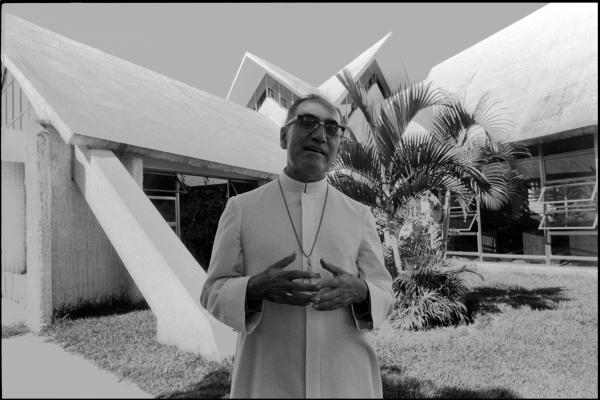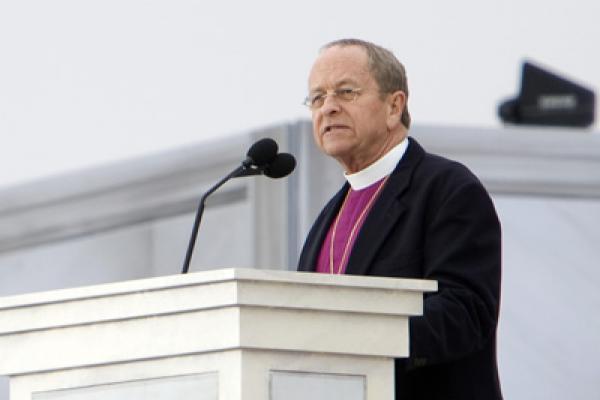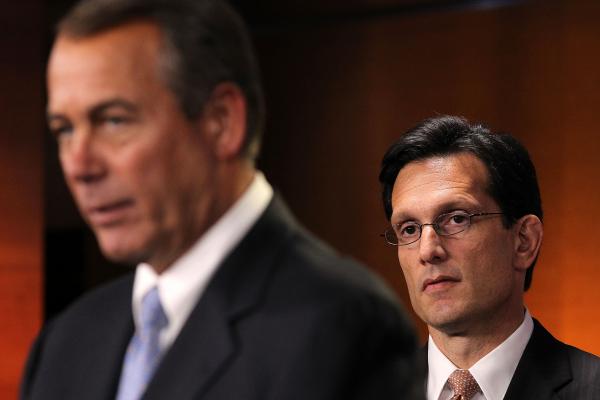Editor's Note: The following is a poem written by Trevor Scott Barton following reading The Violence of Love by Archbiship Oscar Romero, who was assassinated in El Salvador in 1980.
Children
longing for a hero,
living love, peace and hope,
protecting ordinary people from extraordinary hatred and violence,
peaceful hero,
dying for the cause but not killing for it,
denying guns and bombs their power,
risking the violence of love.
Conserving tradition at first for the greatest,
seeing through your glasses at last for the least,
feeling the hunger of underpaid workers,
knowing the poverty of farmers,
hearing the warning, "Here's what happens to priests who get involved in politics,”
holding tears of the disappeared.
Challenging,
calling all to view the liberating body of a slain priest,
serving the poor,
using words to build up humanity and tear down injustice,
"In the name of God, stop killing ..."
offering crucifixion,
discovering resurrection.
ST. LOUIS -- As Drew Burkemper got up to preach, the weight of his task was evident. His classmate at Kenrick-Glennon Seminary, Adam Maus, had just pretty much killed it.
Like Burkemper, Maus and other Catholic seminarians were told to prepare and deliver to his class a homily for an imaginary event.
Maus’ scenario had been a wedding between a 42-year-old bride with four children and her groom, who had recently returned to the Catholic Church. The nine other seminarians in the room loved his approach, showering him in glowing feedback.
Burkemper was up next, faced with a preaching scenario that would challenge any 23-year-old priest-to-be. His homily was for a marriage between a Catholic man and a Jewish woman.
As he began, he worked hard on his delivery, as his professor had taught him. "Father Wester is big on delivering the homily,” Burkemper said later. “Not just reading it.”
The Rev. Don Wester, pastor of All Saints Catholic Church in St. Peters, Mo., is Kenrick’s lecturer of homiletics -- the art of preaching.
CONCORD, N.H. -- When V. Gene Robinson became the first openly gay bishop in the Episcopal Church in 2003, his controversial election triggered shock waves and fears of schism across the worldwide Anglican Communion. Hundreds of parishes left the Episcopal Church in protest.
Now, as this lighting-rod figure prepares to retire on Jan. 5, he’s leaving New Hampshire for a city that knows polarization all too well: Washington, D.C.
But rather than throw fuel on the culture wars, Robinson foresees a new role as a bridge builder for a nation strained by divisive issues. First up: helping his new church home, St. Thomas’ Parish in Dupont Circle, found a Center for Non-Violent Communication.
“Our big goal is to change the nature of the debate in Washington,” Robinson said during an interview at his Concord office. “We’re mostly shouting at each other these days. We’d like (the center) to become a place where people can learn about and commit themselves to a different kind of tone.”
As a privileged child growing up in suburbia, I could never imagine losing my parents. I am incredibly thankful for the opportunities they gave me, and the love they have poured out on me for as long as I can remember.
“You’ll understand once you have a child, Brandon,” my dad has told me countless times in a sort of sage-like way. Without saying, we both acknowledge that I will not understand the love parents have for their children until I have a child of my own.
But, even if I could not comprehend the love my parents had for me, I am able to understand that I could not be who I am today — more likely, I would not be much of anything — without their presence in my life. And that’s not to say that anyone missing a parent cannot function.
But thousands of children to parents living in the U.S. without citizenship are abruptly forced to carry on without one or both of their parents, as a record number of people are being deported from the U.S. According to Immigration and Customs Enforcement (ICE), nearly 45,000 parents were removed in the first six months of this year.
The Angels of Advent are saying, "Do not be afraid" -- we bring good news of immigration reform.
And what does fear do to us?
We disregard the good news at our doorstep, the opportunity to live with Jesus among us, and keep on building walls at our threshold. Perhaps that's why the angels of the Bible repeat this admonishment -- Do not be afraid -- over and over again, for fear inhibits our ability to see and hear a new vision.
I remember as a child wanting to leave the lights on in my room at night. The shadows and sounds were too much for an imagination that could run wild to handle. As adults, of course, it's our duty to assure children that nothing is living in their closets or under their beds. We offer the comfort of reality so that the child will go to sleep and have sweet dreams.
But you have to admit, as adults we are gripped by the same fear but on a different level. We may compulsively check to make sure the front door is locked. We don't look strangers in the eye (especially those we deem to look "strange") as we pass them on the street.
The day after the election, many top Republicans made statements in support of comprehensive immigration reform. With rising Latino participation in elections, they see the need to work across the aisle for true reform to a broken system.
Those behind a new super PAC want to make sure they are successful. The group, Republicans for Immigration Reform, was formed to give political cover to Republicans willing to support bipartisan immigration reform proposals.
On the morning of Nov. 7, just hours after polling places closed and as votes continued to be counted, the national attention seemed to simultaneously switch from projected winners to the issues that deserved immediate attention. Instead of speculation surrounding which candidates may emerge victorious, many expressed the need for swift action on climate change, job creation, and education reform. The meticulous analysis of exit polls was abruptly replaced with calls for change surrounding immigration, taxes, and sustainable peace in the Middle East. Wwithin moments of receiving the news of Election Day winners, the general public swiftly switched its collective attention to matters of the immediate future.
In light of the various challenges facing our national and global community, there are indeed numerous issues that require the immediate attention of our elected officials. And our newly re-elected president, as well as others placed into public service, should be called upon for genuine cooperation, fair action, and immediate impact.
But while urgency is required in light of pressing concerns, an overindulgence of immediacy also contains a long list of shortcomings. Discipline and patience are required to bring forth intellectual depth, balanced consideration, and lasting compassion. As humans are more inclined to favor short-term over long-term rewards, the virtue of patience should be appreciated for its many worthwhile benefits.




